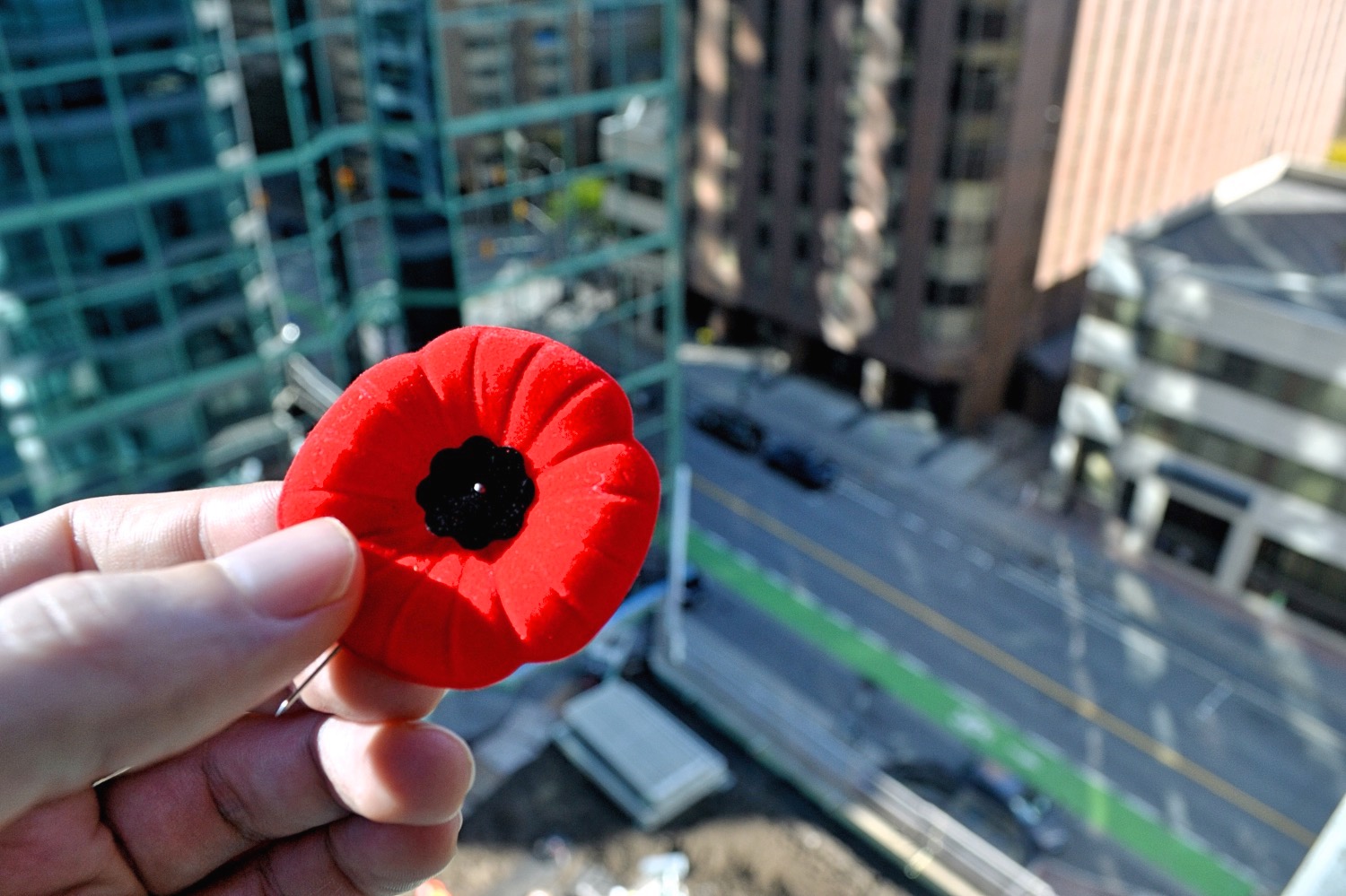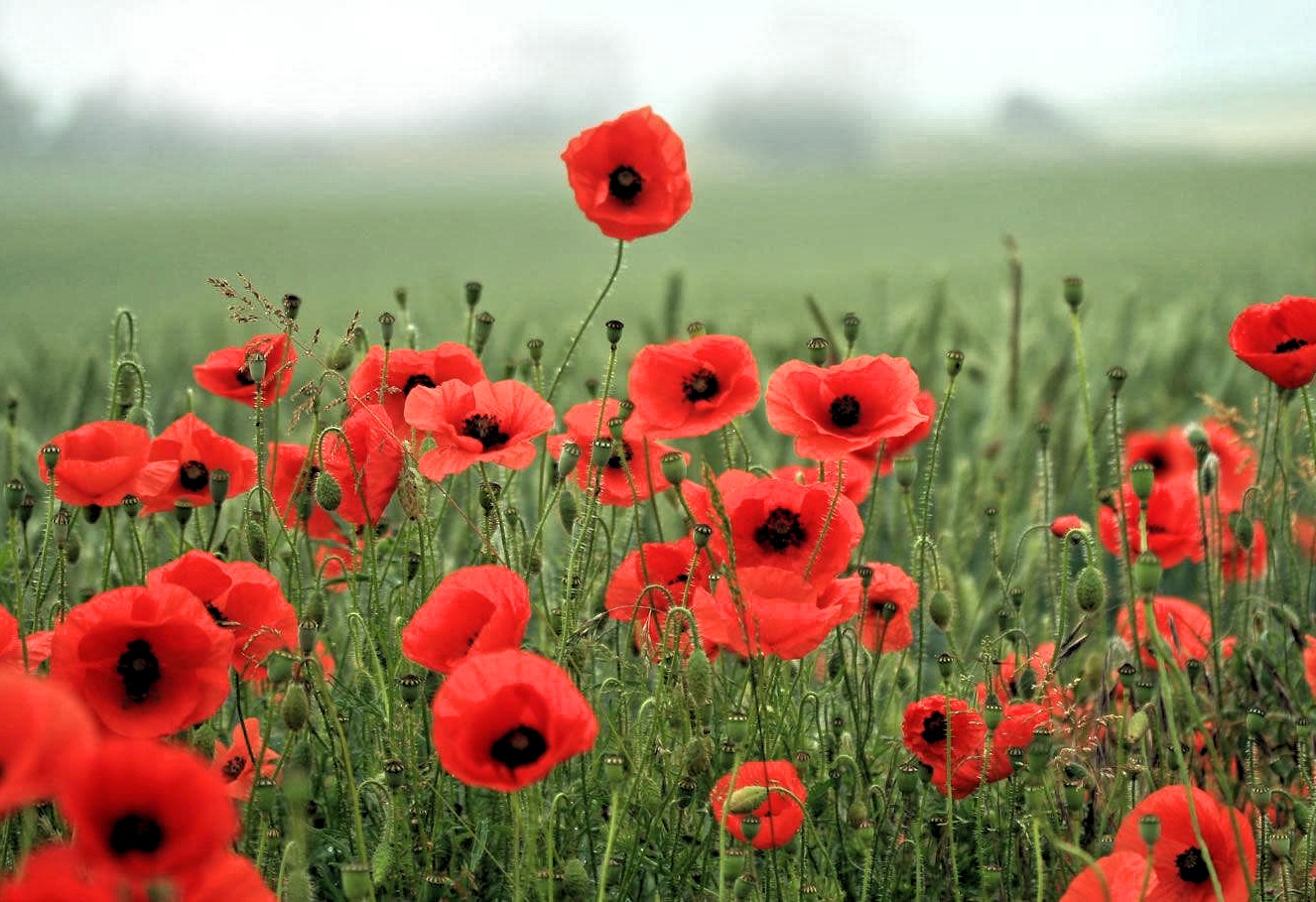
The Poppy Story
Every November, the poppy is manufactured as a symbol of remembering to honour members of the Armed Forces who have given their lives in conflict. Its origins can be traced back to the First World War, when poppies grew in the churned up soil and shell holes of the western front battlefields when nothing else would.

The British Empire and its allies, France, Russia, Italy, Canada and America, fought Germany, Austria, and the Ottoman Empire during the First World War; sometimes known as “The Great War,” which began in 1914. During the war, millions of men joined the British Armed Forces and went to battle. The conditions were appalling, and millions died or were injured as a result. Those who did make it back home were never the same again.
In the Flanders region of Belgium, one of the greatest battles of the war took place near the town of Ypres. In the spring of 1915, a young Canadian soldier named John McCrae was stationed in Flanders when he noticed how bright crimson poppies grew wild amid the war-torn landscape. John, a native of Guelph, Ontario, Canada, had recently lost his best friend in the war. Despite the carnage that surrounded, he was inspired to pen the poem “In Flanders Fields” by the poppies that flourished around him.
In Flanders Fields:
In Flanders fields the poppies blow
Between the crosses, row on row,
That mark our place; and in the sky
The larks, still bravely singing, fly
Scarce heard amid the guns below.
We are the Dead. Short days ago
We lived, felt dawn, saw sunset glow,
Loved and were loved, and now we lie,
In Flanders fields.
Take up our quarrel with the foe;
To you from failing hands we throw
The torch; be yours to hold it high.
If ye break faith with us who die
We shall not sleep, though poppies grow
In Flanders fields.
On the 11th of November 1918, at 11:00 a.m., the First World War came to an end. On the eleventh hour of the eleventh day of the eleventh month. The conflict had lasted more than four years.
John’s poetry was well-received, and was published in the “Punch,” a London-based magazine publication.
An American woman named Moena Michael was inspired to produce and sell red silk poppies in response to McRae’s poem from the “Punch” in 1918, and she fought to make the Poppy a symbol of remembering.
The Royal British Legion liked the idea and ordered nine million of these poppies in 1921, selling them to raise funds on November 11th of that year. The poppies were quickly sold out. The money was used to help veterans find work and a place to live. Because the poppy was so popular, the Royal British Legion built factories and began producing & selling them every year, which they continue to do to this day.

Every year, all throughout the world, a day of remembrance is observed. It is intended to commemorate all wars, not just the First World War. On November 11, we take a moment of silence to honour the courage, valour and sacrifice of the heroes who have served – and continue to serve.
. . .



